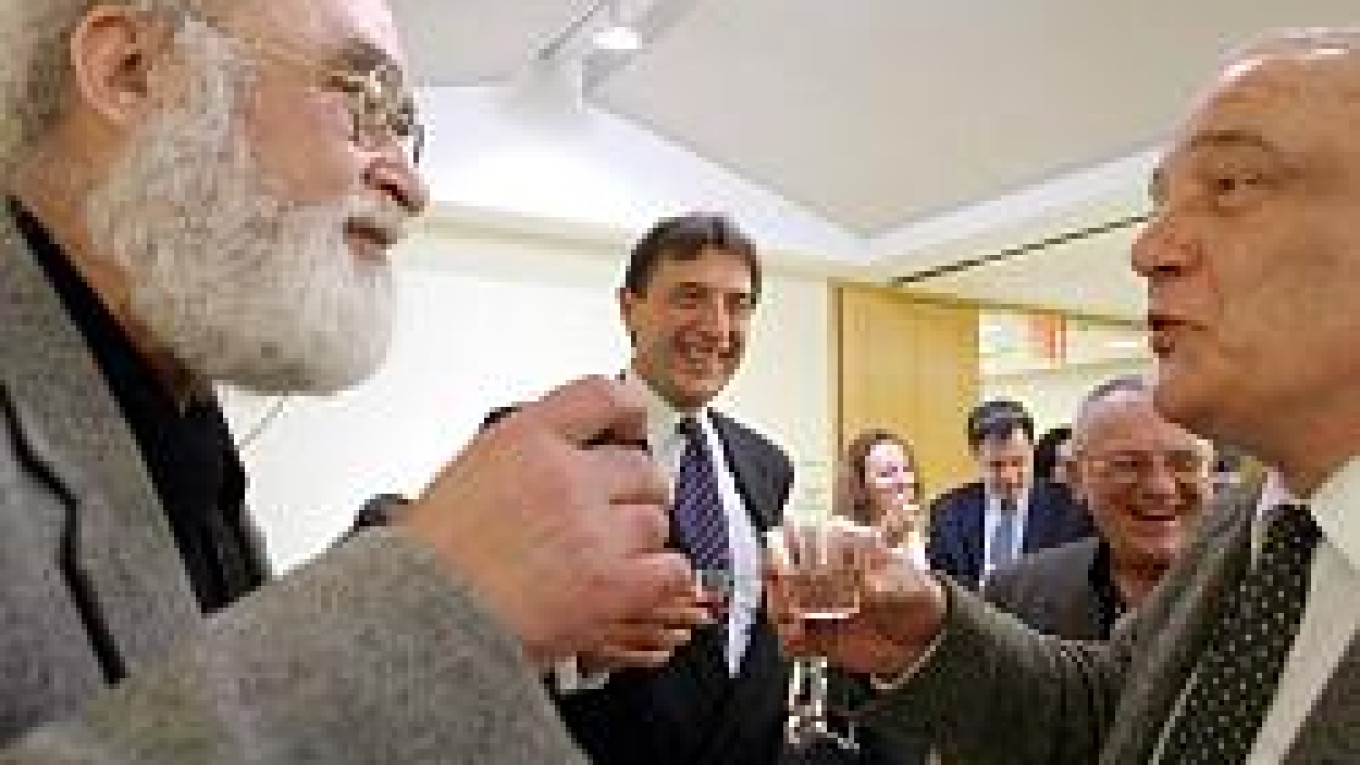Graying and aging, the former political prisoners reminisced one night last week about how they challenged the totalitarian superpower to abide by laws that on paper guaranteed free speech, a free press and fair trials.
Today Russians are turning to Putin, a former KGB colonel, to restore order in their chaotic, market-driven democracy, said Eduard Kuznetsov, 65, who spent 17 years in prison for planning to hijack a plane in Leningrad in 1970 to get out of the Soviet Union.
"More than 50 percent of the key state positions are occupied by former KGB officials," Kuznetsov said. "The KGB officials have a specific mentality. They can't change. There is a danger that it will really be a police state. Not so straightforward as it was under Brezhnev, because there is inertia, because they have to balance between the [opinion of the] free world and a controlled society."
Vladimir Bukovsky, who was labeled insane and spent a total of 12 years in Soviet jails and psychiatric hospitals for repeatedly demonstrating, said Russia is "slowly returning to the pre-1991 situation." "But it will never go back all the way to Brezhnev's time. History doesn't repeat itself so precisely. But they will make a couple of generations miserable again. That's what they will do," said Bukovsky, 61. "You cannot return the Soviet system. It collapsed because it had to collapse. Not because the CIA undermined it or subverted it. They cannot understand in their small minds that it was absolutely doomed. Now, by trying to restore it, they are simply bankrupting the country."
Bukovsky, who won his freedom in a swap for Chilean Communist Louis Corvalan on Dec. 18, 1976, recalled that Putin has lamented the collapse of the Soviet Union as "a tragedy." He said Putin's colleagues also share this view.
"They do so because they used to be young officers of the KGB ... and they still have the feeling that they served the great power and now they want the great power to be back, and they think by repeating the Soviet example they once again will bring greatness to Russia," Bukovsky said.
Yury Orlov, a physicist, now 80, who spent seven years in Soviet prisons and five in Siberian exile for forming a group to monitor Soviet compliance with the 1975 Helsinki agreement on human rights, said he fears Russia will regress but not to what it was. "Russia today is different."
The reunion was held at the headquarters of the nonprofit American Jewish Committee. Vladimir Kozlovsky, who emigrated to the West in 1974, said the assembled dissidents were his idols.
"They were a major factor in turning Russia into a semi-free country from a heavily authoritarian one. My childhood heroes," he said.
A Message from The Moscow Times:
Dear readers,
We are facing unprecedented challenges. Russia's Prosecutor General's Office has designated The Moscow Times as an "undesirable" organization, criminalizing our work and putting our staff at risk of prosecution. This follows our earlier unjust labeling as a "foreign agent."
These actions are direct attempts to silence independent journalism in Russia. The authorities claim our work "discredits the decisions of the Russian leadership." We see things differently: we strive to provide accurate, unbiased reporting on Russia.
We, the journalists of The Moscow Times, refuse to be silenced. But to continue our work, we need your help.
Your support, no matter how small, makes a world of difference. If you can, please support us monthly starting from just $2. It's quick to set up, and every contribution makes a significant impact.
By supporting The Moscow Times, you're defending open, independent journalism in the face of repression. Thank you for standing with us.
Remind me later.


